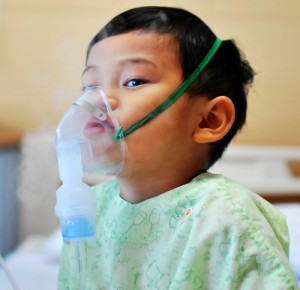 The prevalence of obesity and asthma in children has been growing at an alarming rate. While these two conditions are pressing enough on their own, years of scientific observation and study concluded that the two tend to come in tandem. What remains unclear is which of the two comes first and actually precipitates the development of the second condition. Several factors have been considered such as how being overweight can cause pulmonary physiology to change for the worse, eventually causing a maladaptation that leads to asthma, but the evidence is shaky at best.
The prevalence of obesity and asthma in children has been growing at an alarming rate. While these two conditions are pressing enough on their own, years of scientific observation and study concluded that the two tend to come in tandem. What remains unclear is which of the two comes first and actually precipitates the development of the second condition. Several factors have been considered such as how being overweight can cause pulmonary physiology to change for the worse, eventually causing a maladaptation that leads to asthma, but the evidence is shaky at best.
To help shed some light on this link, a recent study was published in the Annals of Allergy, Asthma and Immunology journal of the American College of Allergy, Asthma and Immunology (ACAAI), entitled, “Childhood asthma and obesity—what is the true link?” It followed a similar concept of asthma following obesity, but it emphasized that there are a number of elements to consider before drawing conclusions on the two conditions’ causal relationship.
The study’s lead author and allergist, Dr. Perdita Permaul, said that there is more literature pinpointing obesity as the cause, and that for this topic, there is a need to focus more research on pediatric patients. She cited a source that suggested a rapid increase in body mass index (BMI) while a child is still a toddler increases the likelihood of developing asthma up to 6 years old.
Another factor Dr. Permaul’s work sought to clarify is the notion of asthmatic children settling into a sedentary lifestyle for fear of an attack. This then causes weight gain, and eventually, childhood obesity.
Fellow allergist, Dr. Michael Foggs, is also the ACAAI’s President. According to him, most children diagnosed with asthma tend to have allergies as well. Asthma attacks triggered by allergens are oftentimes enough to make parents restrict the child’s level of activity and outdoor exposure, which again leads to weight gain and obesity. Dr. Foggs said that enhancing patients’ quality of life is one of the ACAAI’s main missions.
Even with a diagnosis of asthma, the ACAAI believes all children should have opportunities to engage in regular physical activity and sports. By establishing a close working relationship between child, parent and allergist, an asthmatic child’s safety and well-being is maintained without compromising his development and enjoyment.
One of the concerns of people who have asthma are fungal allergies, which are particularly difficult to avoid as these microorganisms tend to grow everywhere. Sensitization to fungi may lead to serious lung complications such as bronchiectasis and long-term pulmonary aspergillosis.

